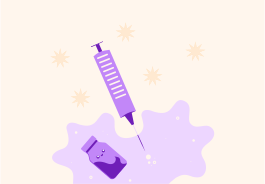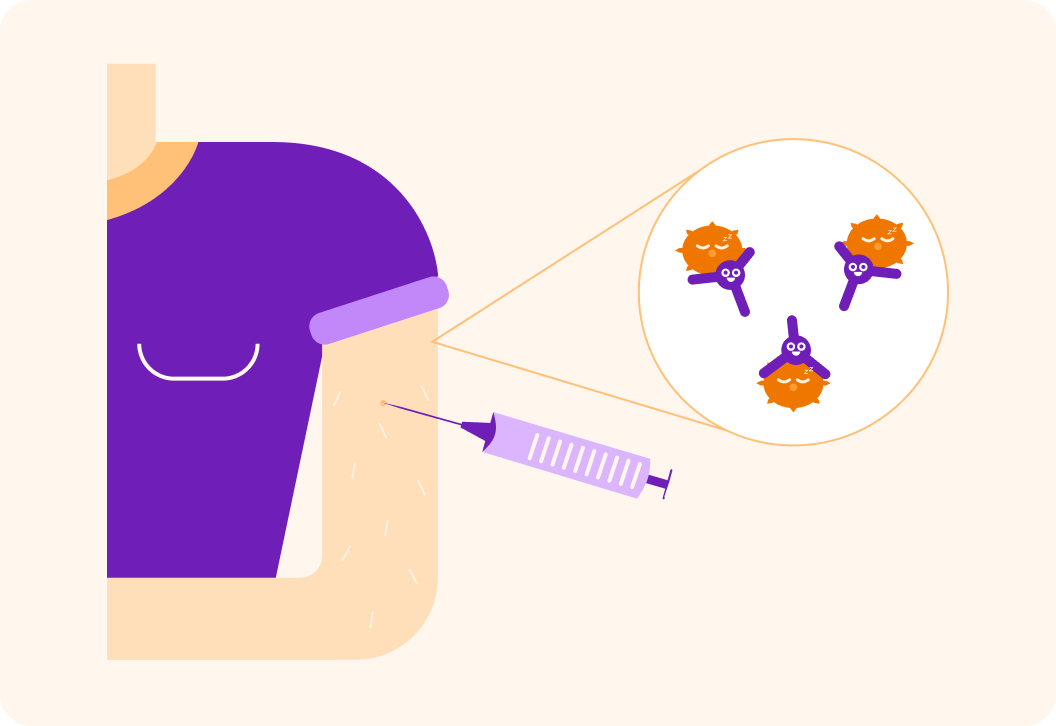YOU ARE LEARNING:
What Is a Vaccination?

What Is a Vaccination?
Vaccines allow the body to have a 'practice run' at learning to attack pathogens, without the person getting ill. This makes it harder for infectious diseases to spread through populations.
The first successful vaccination was developed by Edward Jenner in 1796. Since then, millions of lives have been saved through vaccinations. Let's take a look at what vaccinations are.
What is the type of substance called that gets you ill?

What part of the pathogen does the immune system use to recognise it as a foreign substance that needs to be removed?

Vaccines work by injecting into the body pathogens that causes disease! Does that mean people get ill from vaccines?

To avoid people getting very ill from the vaccine, what form do you think the injected pathogens are in?

When we inject the disabled pathogens into a person, we cause an immune response. Certain cells start to produce antibodies. What type of cells?

So vaccines are like a "practice run" for the immune system.
The immune system learns how to deal with a particular pathogen without the person getting ill, because the pathogens are already disabled.

If someone is vaccinated against disease A, would the vaccine stop them from getting ill if they met non-disabled pathogens of disease A in the future?

What is it that makes someone is much less likely to get ill from disease A after having been vaccinated against it? Pick the most correct answer.

How long do you think it normally takes for the body to develop antibodies against a pathogen?

If vaccinated, the immune system will know exactly which antibodies they need to produce to kill a specific pathogen, whereas normally it would take it a few days to suss it out. So if you are vaccinated, the body usually just shoots down the pathogens immediately, and you don't get ill.
What is one of the positive effects of many people being vaccinated against a certain disease?

